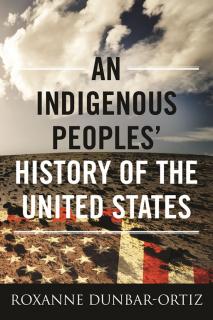What is Doctrine of Discovery?
The True Story of the Colonization of the United States of America
Fourteen minutes telling the true story of the colonization of the United States
The Doctrine of Discovery is a principle of international law dating from the late 15th century. It has its roots in a papal decree issued by Pope Nicholas V in 1452 that specifically sanctioned and promoted the conquest, colonization, and exploitation of non-Christian territories and peoples. Hundreds of years of decisions and laws continuing right up to our own time can ultimately be traced back to the Doctrine of Discovery—laws that invalidate or ignore the rights, sovereignty, and humanity of indigenous peoples in the United States and around the world.
In 1823, the United States Supreme Court ruled in Johnson v. M’Intosh that the discovery rights of European sovereigns had been transferred to the new United States:
The United States, then, have unequivocally acceded to that great and broad rule by which its civilized inhabitants now hold this country. They hold and assert in themselves, the title by which it was acquired. They maintain, as all others have maintained, that discovery gave an exclusive right to extinguish the Indian title of occupancy, either by purchase or conquest; and gave also a right to such a degree of sovereignty, as the circumstances of the people would allow them to exercise.
Associate Justice Joseph Story, a Unitarian, (1779-1845) later wrote: “As infidels, heathens, and savages, they [the Indians] were not allowed to possess the prerogatives belonging to absolute, sovereign and independent nations.”
Find out more about the history by exploring these resources:
Videos
- The Doctrine of Discovery: Unmasking the Domination Code (2015), directed by Sheldon P. Wolfchild and narrated by Buffy Sainte-Marie. This 61-minute video explains how the 1493 Doctrine of Discovery became encoded into US Law and history and why it matters today. Purchase a personal copy ($25) or an educational institution copy ($50) from 38 Plus 2 Productions.
- Professor Robert J. Miller, of Lewis and Clark University, speaks about The Doctrine of Discovery and Manifest Destiny (YouTube 30:56) and explains how the doctrine undergirded the settlement and colonization of the United States. The ten points that Miller explains in the video can be found on the site of The Indigenous Peoples Forum on the Impacts of the Doctrine of Discovery.
Websites
- The Indigenous Law Institute works to develop a radically new basis for thinking about Native rights, from a Traditional Native Law perspective, and contends that Native nations and peoples have an inherent right to live free of all forms of empire and domination. Among the resources about the doctrine is the paper, Five Hundred Years of Injustice: The Legacy of Fifteenth Century Religious Prejudice, by Steven T. Newcomb.
- The Indigenous Peoples Forum on the Impact of the Doctrine of Discovery addresses the implications of the doctrine in today’s world and advocates for the repudiation of the doctrine and the full implementation of the United Nations Declaration on the Rights of Indigenous People.
Books
- An Indigenous Peoples’ History of the United States, by Roxanne Dunbar-Ortiz (Beacon, 2015) is a history of the United States told from the perspective of indigenous peoples. The UUA has provided a discussion guide (PDF, 37 pages), with plans for a single session or for three sessions.
- Native America, Discovered and Conquered: Thomas Jefferson, Lewis and Clark, and Manifest Destiny, by Robert J. Miller (Bison Books, 2008) illustrates how the American colonies used the Doctrine of Discovery against the Indian nations from 1606 forward. Miller’s analysis of the principles of discovery brings a new perspective and valuable insights to the study of Jefferson, Lewis and Clark, the Louisiana Purchase, the Pacific Northwest, American expansionism, and U.S. Indian policy.
- Pagans in the Promised Land: Decoding the Doctrine of Christian Discovery, by Steven T. Newcomb (Fulcrum Publishing, 2008) provides a unique, well-researched challenge to U.S. federal Indian law and policy. It attacks the presumption that American Indian nations are legitimately subject to the plenary power of the United States.
All the Real Indians Died OffAnd 20 Other Myths About Native Americans
By Dina Gilio-Whitaker, Roxanne Dunbar-Ortiz
Unpacks the twenty-one most common myths and misconceptions about Native Americans

![By Alvan Clark (1804–1887) [Public domain], via Wikimedia Commons Portrait of Joseph Story](/files/styles/max_320x320/public/jpg/1/1846_joseph_story.jpg?itok=mqF-6xjD)
